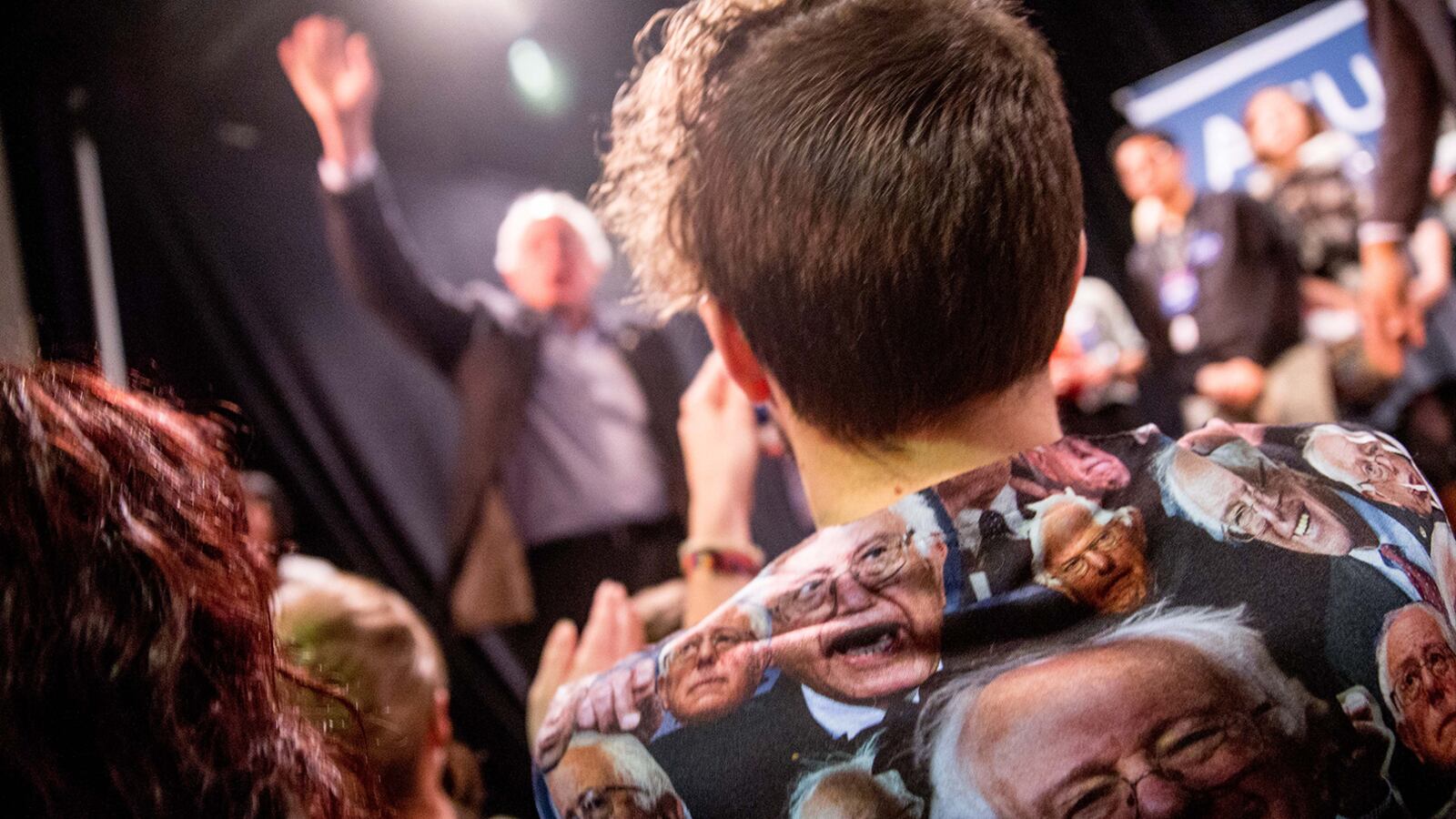Democrats have long been assailed by a favorite far right criticism: they are all a bunch of socialists. But if the Democratic Party chooses Sen. Bernie Sanders as their nominee, the far right might actually have a point.
Sanders’ viability in a general election will be affected by his associations with radical leftist organizations, such as the Young People’s Socialist League or the Trotskyist Socialist Workers’ Party, especially in In college and his first decades of political activism.
"It's logical to assume that there will be some sort of—what we used to call 'red-baiting' going on,” said Greg Guma, the author of 'The People's Republic: Vermont and the Sanders Revolution,” who has known the senator for decades. “ Can you successfully ‘red-bait’ in 2016? Maybe among older people, who have a cold war mentality, but less so among younger people."
Sanders now identifies as a “democratic socialist” and says he is not a capitalist. This may not be a dealbreaker among Iowa Democrats since some 43 percent of likely caucus-goers use the word 'socialist' to describe themselves.
But Guma said Sanders’ background with leftist groups could be used to indicate to Democrats that Sanders, who didn’t formally register with the Democratic Party until 2015, isn’t fully one of them.
Some Republicans also view elements of Sanders’ early biography as a vulnerability to be exploited.
“I have no doubt that Bernie’s long-standing ties to socialist policies and economics would be used in a national campaign against him,” said former Republican Rep. Bob Walker, now the executive chairman of the Wexler Walker lobbying group. “The economic policies that are heavily redistributionist and tax increase oriented would be the focal point of such a campaign, in my opinion.”
Sanders’ association with the radical left is varied—over many years of political development he came to be associated with the youth section of the Socialist Party; the Trotskyist Socialist Workers’ Party; the anti-war Vermont Liberty Union Party, and the left-wing People’s Party.
As a student at the University of Chicago, Sanders was involved in the Young People’s Socialist League, or ‘Yipsel’ and picketed President Lyndon B. Johnson aide Sargent Shriver when he visited campus in Sanders’ senior year, according to Mother Jones: “[We] will not serve as a front for your capitalist system,” the group wrote in an open letter.
In the 1970s, Sanders became involved with the Liberty Union, an anti-war political party in Vermont. In 1971, Sanders’ platform involved the legalization of all drugs, while in the following year he wrote in an op-ed that Congress should “institute public ownership, with worker control, of the major means of production.” Several years later, in 1976, Sanders told the Bennington Banner that a “sane society” required that “capital has to be controlled by the people.”
Sanders ran twice for governor and twice for Senate under the party's banner before ultimately leaving the party.
"He was never really a party guy," Guma told The Daily Beast, calling Sanders' association with the party merely "tangential…. his career was to be a voice and a candidate… he was an idealistic young person, that's what he was."
Still, Sanders was involved enough that he served as the chairperson of the party for several years in the 1970s. In 1972, Sanders backed Benjamin Spock as a presidential candidate over the Democratic candidate, George McGovern.
Spock was the candidate for the People’s Party, a now-defunct political party than ran in two presidential elections. Spock called for a maximum income of $55,000 and a minimum annual income of $6,500 for a family of four. Spock’s ideas were more in line with Liberty Union, as compared to McGovern’s ideas, Sanders said at the time.
Sanders also served as a presidential elector for the Socialist Workers’ Party in 1980, something that he acknowledged in a 1988 television appearance. The group at the time was a Trotskyist party that pressed for the abolition of capitalism and the peaceful establishment of socialism.
“I was asked to put my name on the ballot and I did, that’s true,” Sanders said, in the 1988 appearance. But he insisted he was never a member of the Trotskyist party.
Sanders ran and won a narrow race for mayor of Burlington, Vermont in 1981. Though he ran as an independent, he identified himself as a socialist mayor. He continued to be an independent until he put himself on the ballot as a Democrat in the current presidential race.
The now-senator’s associations with various leftists groups seem not to have sunk in -- if they matter at all. A large number of Democrats seem not to mind: over the past year, Sanders has gradually narrowed a large Iowa voter gap with fellow Democrat Hillary Clinton.
With just days left to go until Iowans caucus, the Huffington Post's poll tracker shows Sanders just three percentage points back from the former Secretary of State.
But the Democratic primary and the general election are two different contests: among the American electorate there is much less interest in electing a socialist. 50 percent of Americans polled by Gallup in June 2015 said they could not vote for a candidate that identified as a socialist, as compared to 47 percent who could. In fact, 'socialist' was the least appealing of the attributes that the survey company polled.
But Guma, the longtime Sanders-watcher, said Sanders’ current ideas would ultimately be more decisive than the associations he held decades ago.
"I don't think that his biography will ultimately be that important,” Guma said, bemoaning "the attempt to mine his biography for something to disqualify him, as a leftist—socialism: it's foreign to people.”






